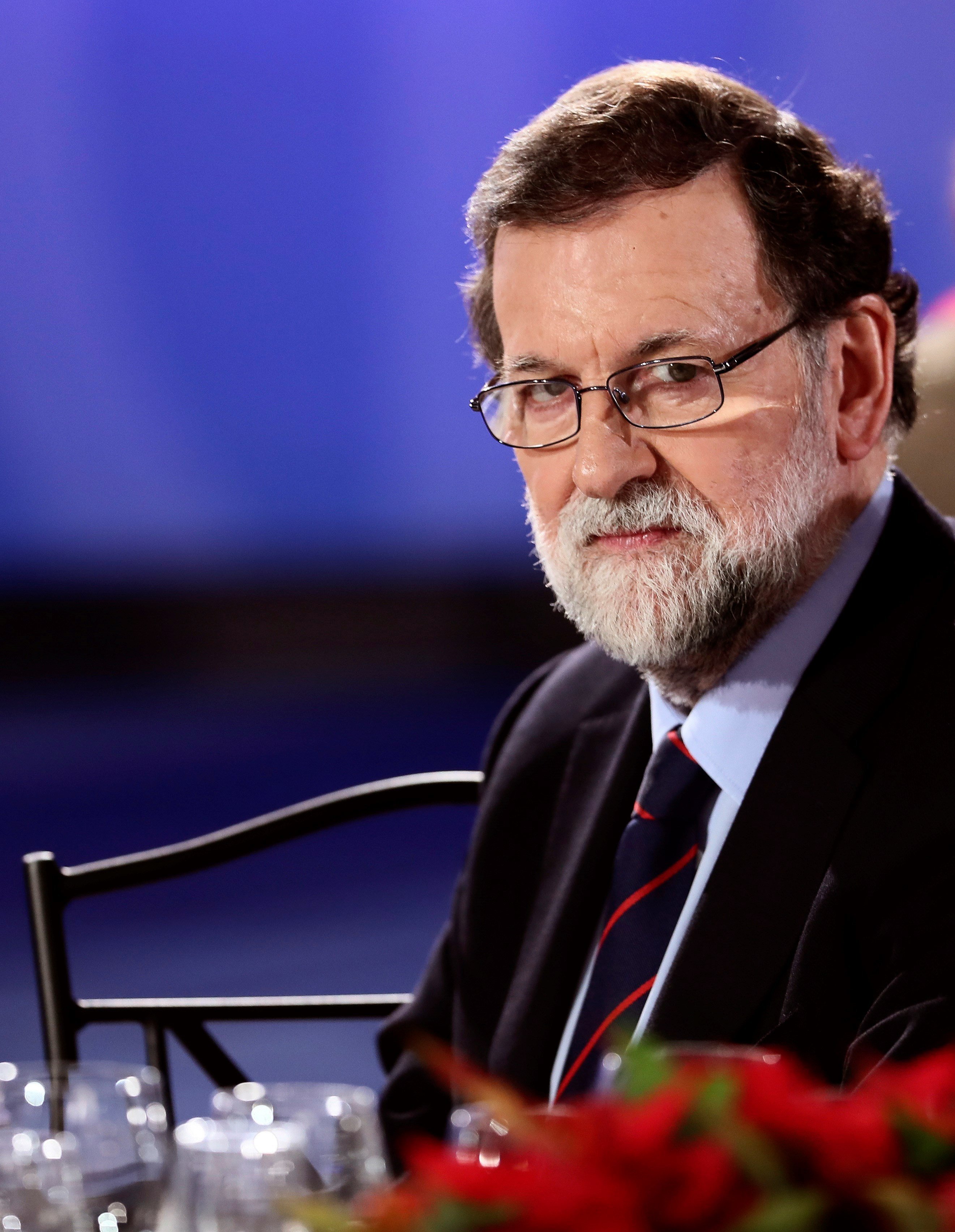Mariano Rajoy has appeared at the Spanish government's Moncloa Palace to face the consequences of the results of a Catalan election he called using article 155 of the Constitution. The Spanish prime minister has decided to first negotiate with Inés Arrimadas, because her party won the most seats in the election. But, given the hypothesis that Carles Puigdemont will be reinstated president, Moncloa sources don't discount eventually talking with him, adding that the legal case against him doesn't depend on them.
"The legal situation doesn't depend on yesterday's decision. The justice system doesn't have to submit to any strategy", said Rajoy over his refusal to find a way for Puigdemont to be able to return from Brussels to hold the investiture debate. The fact is that, if that happens, the central executive wouldn't have any problem in treating him as a valid negotiating partner. However, the idea becomes a fantasy in the short term, taking into account that, if the Catalan crosses the border, legal authorities will arrest him, very possibly leading to him being placed in preventive detention, like vice-president Oriol Junqueras.
In this state of affairs, the head of the central executive avoided explaining what offer he would make to a Catalan Parliament which this Thursday returned a pro-independence majority with more votes than in 2015. Rajoy announced that the possible constitutional reform won't depend on this scenario, nor did he commit to anything specific, beyond "pushing for dialogue for the law to be followed". He told El Nacional that this stands is despite the 70 seats won by the pro-independence parties, as no leader can "approve parallel laws". "The problem isn't what each person thinks", he said about the hopes of independence supporters.
Rajoy defended article 155 as the start of a period of bilaterality, based on the principle of legality. He called for the first priority of the new government to be to overcome "the social fracture caused by radicalism". Similarly, the attempt to heal the economy, through the reestablishment of certainty, of sales, of tourism and of employment rates. He expressed his satisfaction with the intervention in Catalan self-governance, since the fragmented vote and Cs' victory would show that "nobody can speak now in the name of Catalonia, if they don't consider all Catalonia. It's not monolithic, it's pluralistic," he said.
PSOE and Ciudadanos are threatening to demand explanations in the coming hours over the failed strategy. Pedro Sánchez and Albert Rivera had positioned themselves in favour of article 155 lasting more than two months and the election being held in January or even in the middle of the year. Rajoy, however, preferred a quick intervention and an election in December. "It was prudent and intelligent. It was taken when there was an absolute majority of support", he noted, referencing PSOE's reticence to implement the measure before the 1st October referendum.
Rajoy has recognised the defeat of the constitutionalist bloc and those who wanted "a change" and has also assumed the debacle of his PP party which saw their Catalan branch fall to 3 seats having been personally involved in the campaign along with other members of the cabinet. "As any president or party member would do," he said. That said, he did praise the work and the "effort" of his party's candidate for Catalan president, Xavier García Albiol.
Finally, the prime minister noted that article 155 will end when decreed by the Senate, in other words, once there is a new Catalan government.

